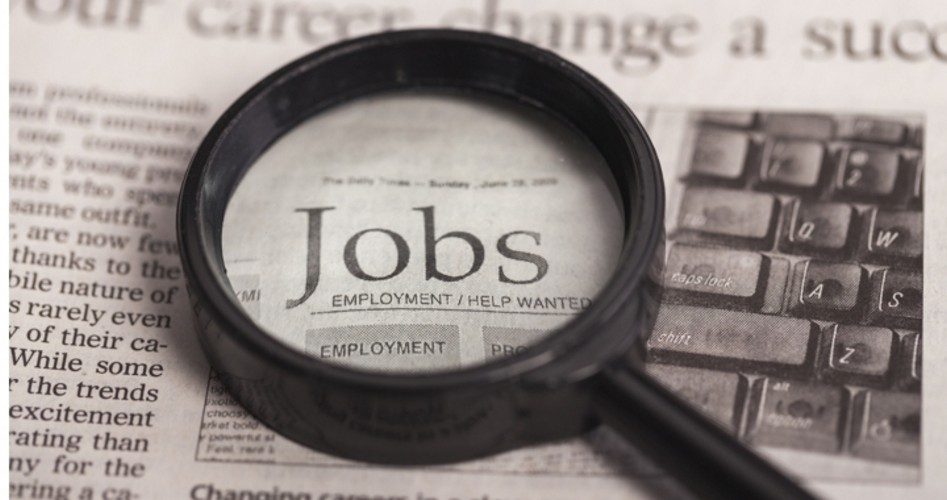
It’s far too early to be writing off the longest-running economic expansion in history, as some in the media appear to be doing. Following the release of May’s jobs report from the Bureau of Labor Statistics (BLS) on Friday, CNBC whined that it was “much worse” than expected, while Jeffry Bartash, writing for MarketWatch, called the report a “warning sign for the economy.”
The headline number was 75,000 new jobs in May contrasted with forecasters’ estimates of 185,000. The BLS also revised lower their estimates for March and April by 75,000. The BLS report comes on the heels of the ADP report on Wednesday showing just 27,000 new jobs were created in May.
Behind those headlines, and the premature handwringing, was much to be celebrated: Unemployment levels remain at 50-year lows, wages are continuing to increase, and the number of long-term unemployed people continues to drop.
To gain some perspective: The BLS noted that “the number of unemployed persons was little changed at 5.9 million.” That’s just 1.8 percent of the nation’s total population, which is nearing 330 million. Just how much lower can that go? Is this reflective of the U.S. economy’s increasing need for skilled workers from a steadily diminishing pool of those looking for work? If so, how can that be bad news?
Instead, if this surmise is correct, employers will continue to search for other ways to increase productivity, either by giving their present employees additional training to become more effective and efficient, or by adding robotics to the workforce, or (most likely) a mixture of both. In other words, a shrinking pool of workers isn’t likely to stall this gigantic economy that is powering ahead.
Remember that May’s jobs report marks the 104th straight month of positive jobs growth, which means, when averaged since the first of the year, that 600,000 new jobs have been created since January 1.
Also buried in the jobs report is that the government laid off 15,000 workers last month, who were removed from the backs of taxpayers at the local, state, and federal level and may be on their way to finding work in the private sector. Rather than being a financial drain on the economy, this may instead become a positive financial addition.
Much is being blamed on Trump’s “tariff wars,” with angst being expressed by people who should know better. They complain that his policies are hurting the U.S. economy, with little or no relief in sight. Forgotten are his intentions: He is using tariffs as a negotiating tool to bring foreign competitors (and enemies, such as China) to the negotiating table to reduce tariffs. If he is successful, tariffs will drop precipitously across the globe, benefitting every economy and raising the standard of every consumer in every nation. His strategy is simple: short-term pain for long-term gain.
There is increasing pressure on the Federal Reserve to reduce interest rates, starting perhaps as soon as this month. When Chairman Powell suggested it, Wall Street rejoiced with the Dow jumping several hundred points in anticipation of the positive impact such a move would have on the economy.
Nothing is being said about the coming tax cut in the form of lower gas prices. Currently, the average price for a gallon of gasoline is $2.77, but with the fall in the price of crude oil, that price is predicted to fall by at least 50 cents a gallon over the next month or so. The math is simple, and persuasive. The U.S. Energy Information Administration (EIA) reports that Americans consume an average of nearly 400 million gallons of gas every day. If those estimates are correct, that’s a savings of $200 million a day ($6 billion a month; $72 billion a year), and, it’s tax-free. Talk about a shot of espresso to the economy!
It’s far too soon to write off the current economic expansion, according to Robert Frick, a corporate economist at the Navy Federal Credit Union: “Today’s 75,000 jobs number could mark the beginning of the end of the strong jobs expansion, or it could be an outlier. We’ll have to see another couple of months of jobs numbers before we can establish [that] hiring is slowing down.”
Image: artisteer via iStock / Getty Images Plus
An Ivy League graduate and former investment advisor, Bob is a regular contributor to The New American, writing primarily on economics and politics. He can be reached at [email protected].
Related article:



